Wooden pergola with swing – Immerse yourself in the enchanting world of wooden pergolas with swings, where nature’s embrace intertwines with architectural artistry. These captivating structures not only enhance the aesthetics of your outdoor space but also invite you to create unforgettable memories, enveloped in tranquility and joy.
From rustic charm to modern elegance, wooden pergolas with swings seamlessly complement diverse design styles. The incorporation of a swing adds a touch of whimsy and playful elegance, transforming your outdoor haven into a sanctuary of relaxation and entertainment.
Design and Aesthetics
A wooden pergola with a swing is a visually appealing addition to any outdoor space. The natural beauty of wood complements the greenery of plants and flowers, creating a harmonious and inviting atmosphere. The open structure of the pergola allows sunlight to filter through, casting dappled shadows that add depth and interest to the area.
Design Styles
Pergolas with swings come in a variety of design styles to suit different tastes and architectural preferences. Traditional pergolas feature classic columns and beams, while modern designs incorporate clean lines and contemporary materials. Rustic pergolas, made from rough-hewn wood, add a touch of charm to outdoor spaces, while elegant pergolas, with intricate carvings and embellishments, create a sophisticated ambiance.
Benefits of Incorporating a Swing
Incorporating a swing into the pergola structure enhances its functionality and appeal. The swing provides a comfortable and relaxing place to sit and enjoy the outdoors. It can also be used as a play area for children, adding an element of fun and excitement to the space. Additionally, the swing can serve as a focal point, drawing attention to the pergola and creating a sense of unity in the outdoor area.
Materials and Construction
The durability and aesthetics of a wooden pergola depend heavily on the materials used for its construction. Selecting the right wood species and hardware is crucial to ensure the pergola’s longevity and structural integrity.
Wood Species, Wooden pergola with swing
- Cedar: Naturally resistant to rot and insects, making it a popular choice for outdoor structures. Its reddish-brown hue adds warmth and elegance to the pergola.
- Redwood: Another rot-resistant wood with a deep reddish-brown color. It is known for its durability and resistance to warping.
- Pressure-treated Pine: A budget-friendly option that has been treated with chemicals to enhance its resistance to decay and insects. However, it may require more maintenance and has a shorter lifespan compared to cedar or redwood.
- Cypress: Naturally durable and resistant to rot, insects, and moisture. It has a light brown color that ages gracefully to a silvery-gray.
Hardware and Fasteners
Choosing the appropriate hardware and fasteners is essential for ensuring the stability and safety of the pergola. Use galvanized or stainless steel screws, bolts, and connectors for outdoor use to prevent rust and corrosion.
- Lag Screws: Long, coarse-threaded screws used to secure beams and rafters to posts.
- Carriage Bolts: Heavy-duty bolts with a square head and washer used to connect beams and rafters.
- Connector Plates: Metal plates used to join beams and rafters at right angles.
- Joist Hangers: Metal brackets used to support joists and beams.
Site Planning and Installation
When choosing a location for a pergola with a swing, consider factors such as sun exposure, drainage, and proximity to other structures. Ample sunlight is ideal for maximizing swing enjoyment, while good drainage prevents water from pooling beneath the pergola. Ensure the structure is positioned at a safe distance from any buildings, trees, or power lines.
Determine the size and orientation of the pergola based on the available space and desired functionality. Consider the number of people who will be using the swing and the amount of seating or storage space needed. Orient the pergola to take advantage of prevailing breezes or shade, depending on the climate.
Installing the Pergola and Swing
- Prepare the site by clearing the area and leveling the ground.
- Assemble the pergola frame according to the manufacturer’s instructions.
- Dig holes for the pergola posts, ensuring they are deep enough to provide stability.
- Place the posts in the holes and backfill with concrete.
- Attach the pergola roof and any additional features, such as lighting or curtains.
- Install the swing by hanging it from the pergola rafters using chains or ropes.
- Check the stability of the entire structure and make any necessary adjustments.
Customization and Accessories
Pergolas can be customized to suit personal preferences and enhance their functionality and style. Here are some ways to personalize a pergola and incorporate accessories that can add comfort and ambiance to the outdoor space.
One way to customize a pergola is to choose the right size and shape for the available space. Pergolas can be freestanding or attached to a house, and come in various sizes and shapes, such as rectangular, square, or octagonal. The choice of size and shape depends on the available space and the desired level of shade and privacy.
A wooden pergola with swing is a beautiful and functional addition to any backyard. It provides shade and shelter from the sun and rain, and it can also be used to create a cozy seating area. If you’re looking for a more versatile option, consider a wooden pergola with retractable canopy.
This type of pergola allows you to control the amount of shade and sun exposure, making it perfect for all seasons. A wooden pergola with swing is a great way to add style and comfort to your outdoor space.
Accessories
Accessories can further enhance the functionality and style of a pergola. Curtains or drapes can provide shade and privacy, and can be made of various materials such as canvas, fabric, or vinyl. Lighting can create a cozy and inviting atmosphere in the evenings, and can be installed in various forms such as string lights, lanterns, or recessed lighting. Seating can be added to create a comfortable outdoor living space, and can include benches, chairs, or swings.
Plants and Greenery
Incorporating plants and greenery into the pergola design can add a touch of nature and create a more inviting space. Climbing plants such as vines or ivy can be trained to grow up the pergola posts and create a lush canopy. Hanging baskets or planters can be used to add color and variety to the pergola, and can be filled with flowers, herbs, or other plants.
Maintenance and Preservation
Maintaining a wooden pergola with a swing requires regular care to preserve its beauty and longevity. Cleaning, sealing, and addressing common issues are essential aspects of pergola maintenance.
Cleaning and Sealing
Regular cleaning removes dirt, debris, and mildew that can accumulate on the wood. Use a mild soap solution and a soft cloth or brush to gently scrub the surfaces. After cleaning, allow the wood to dry completely before applying a protective sealant. Sealing helps protect the wood from moisture, UV rays, and insects, extending its lifespan.
Addressing Common Issues
Common issues like rot and insect damage can affect wooden pergolas. Rot occurs in areas with excessive moisture, so it’s important to keep the wood dry. Inspect the pergola regularly for signs of rot, and replace affected areas promptly. Insect damage can be prevented by using insect-repellent wood treatments and sealing the wood to prevent entry points.
Outcome Summary: Wooden Pergola With Swing
As you embark on the journey of creating your own wooden pergola with swing, let this guide be your trusted companion. Explore the nuances of design, delve into the intricacies of materials and construction, and discover the art of customization and maintenance. Embrace the endless possibilities and transform your outdoor space into a captivating oasis that will inspire and rejuvenate for years to come.
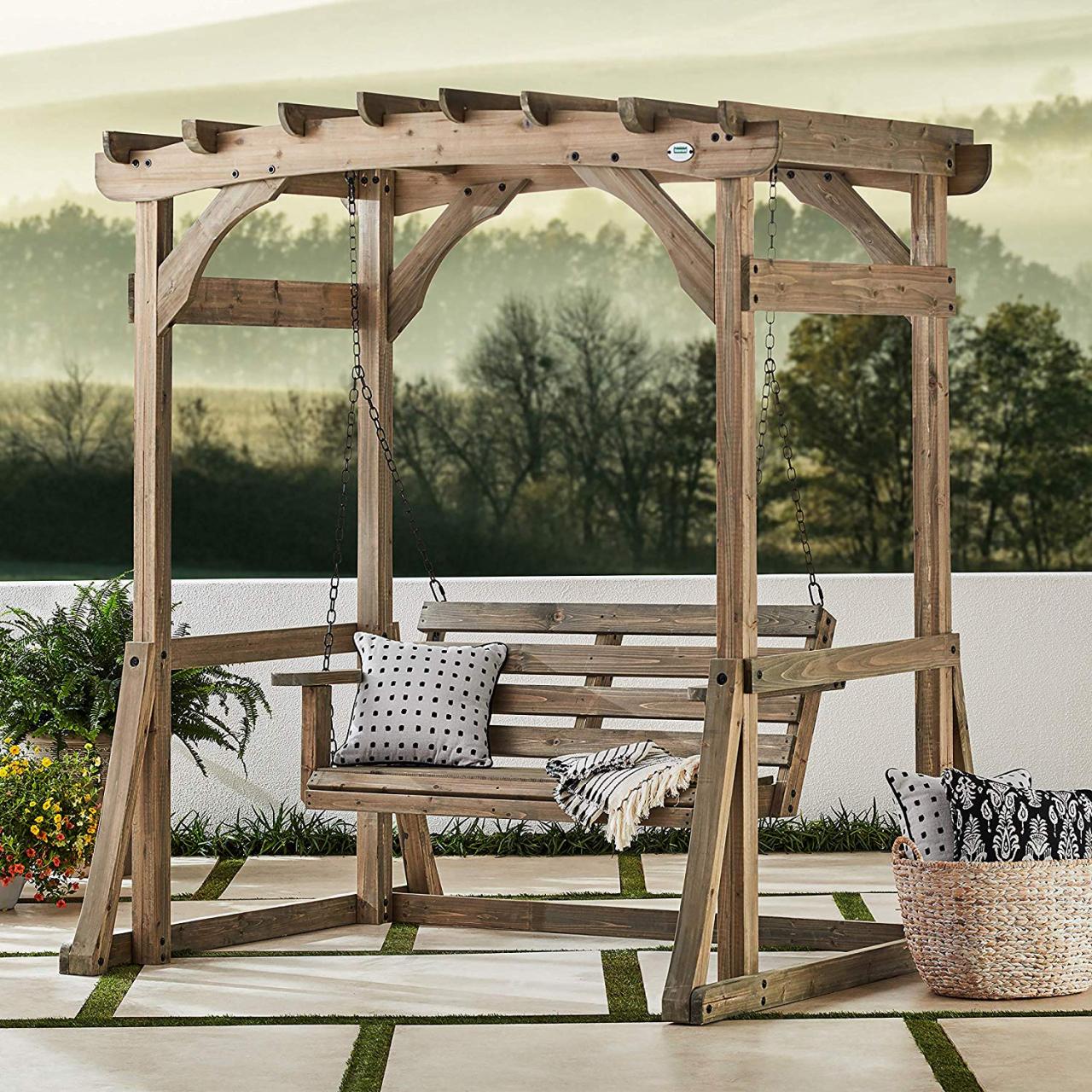
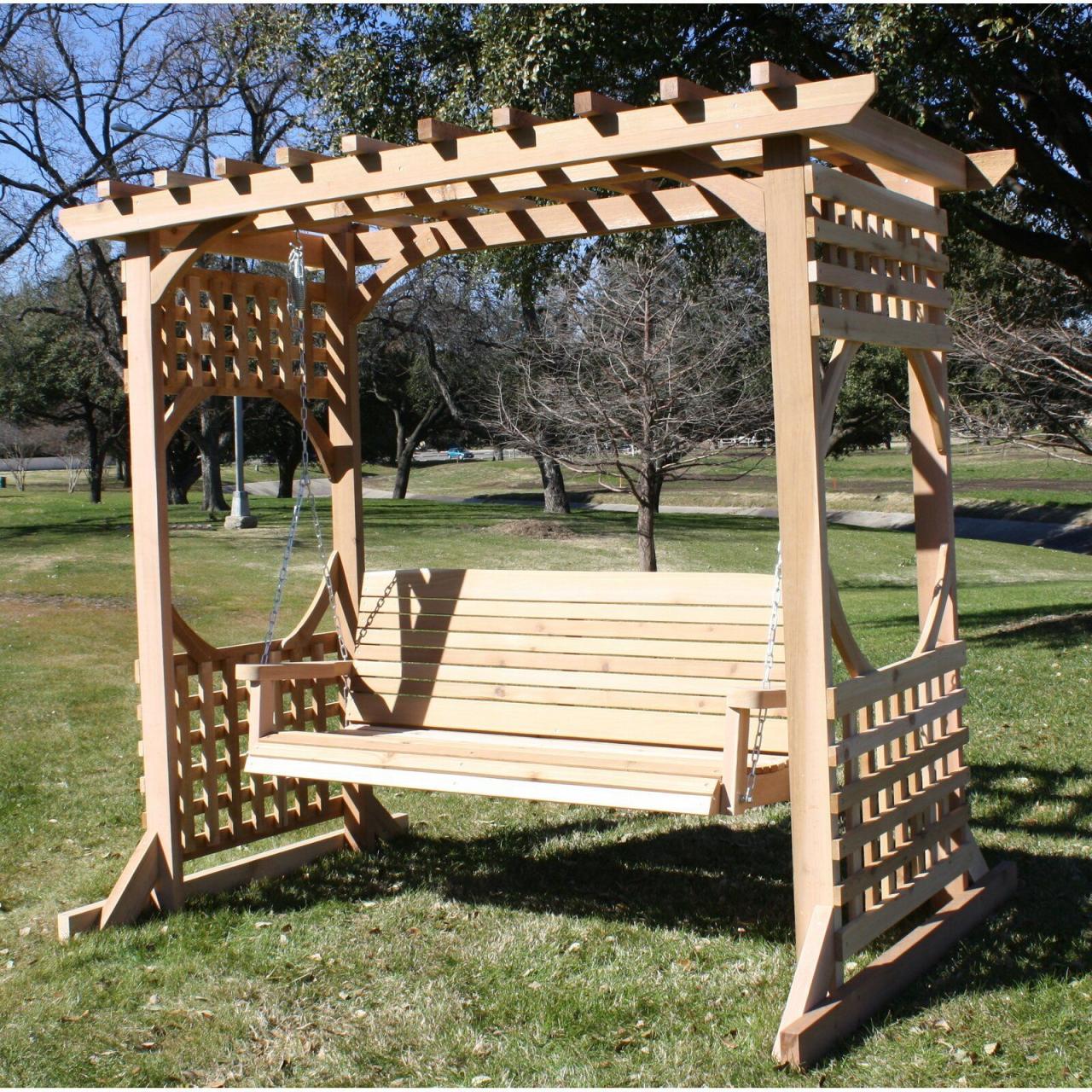
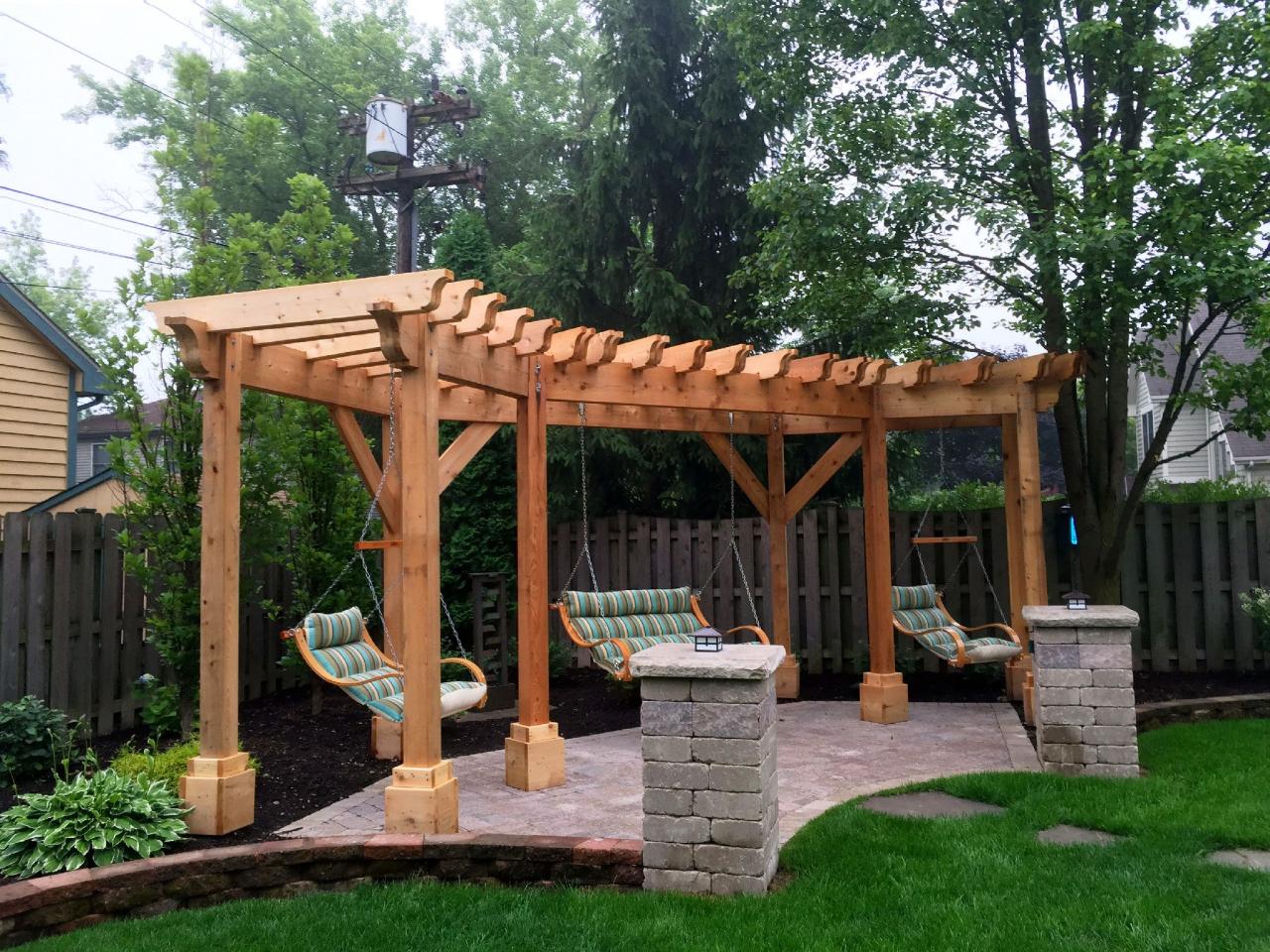
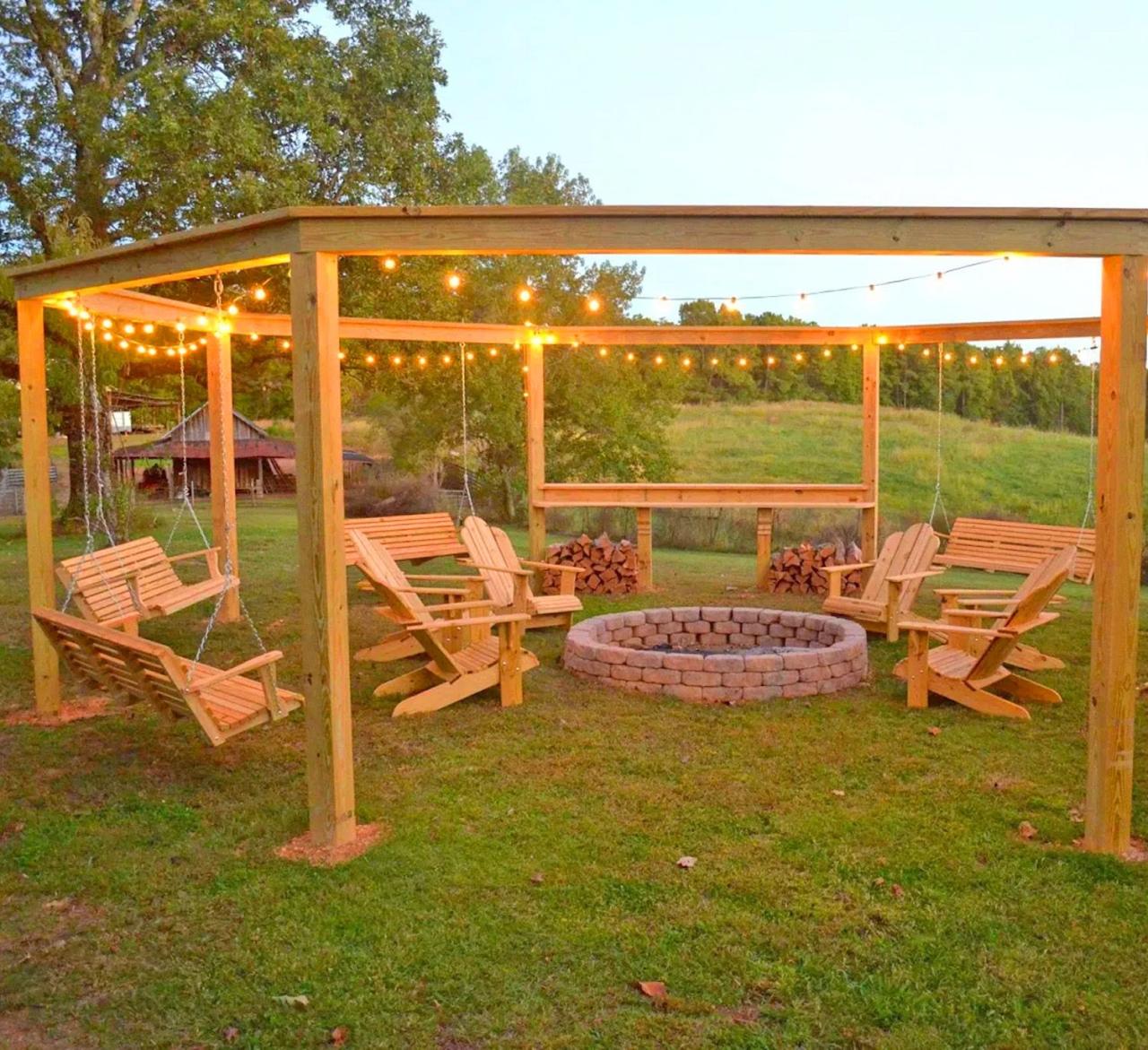
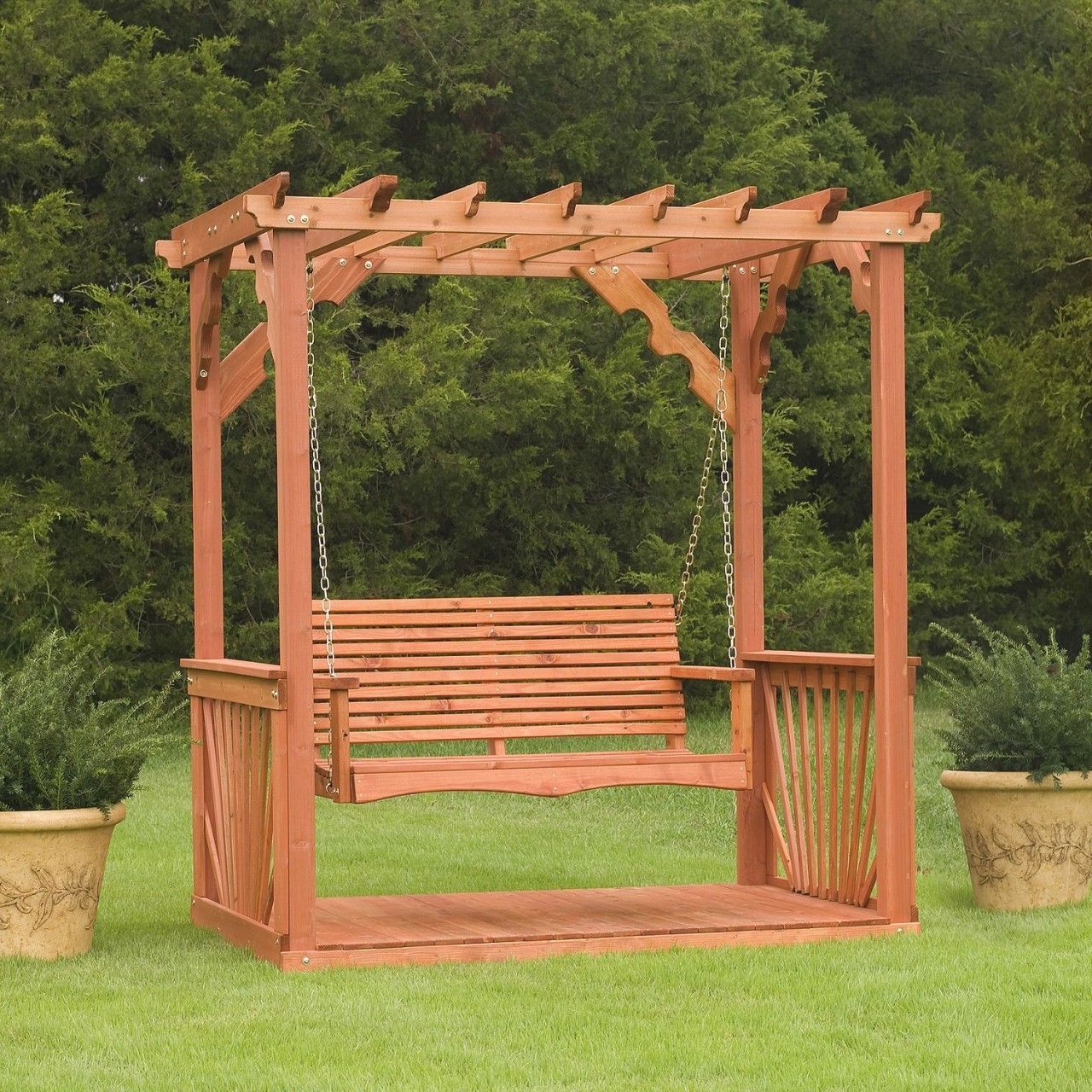
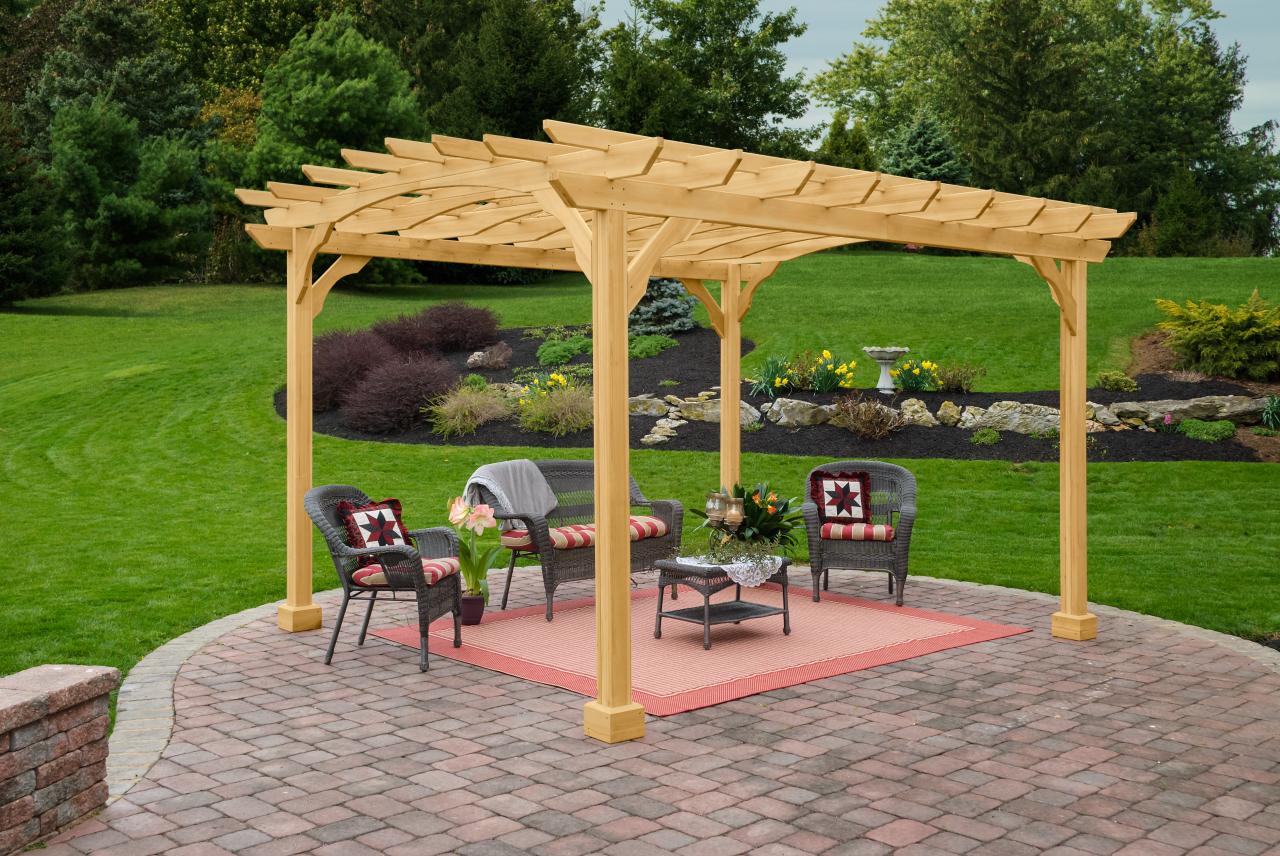
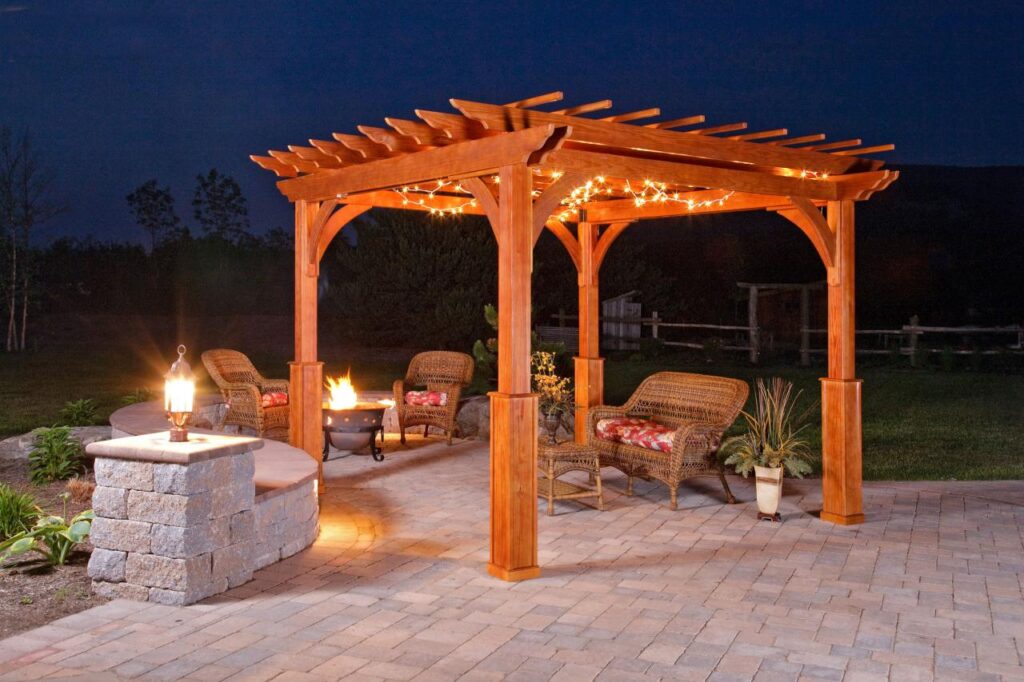
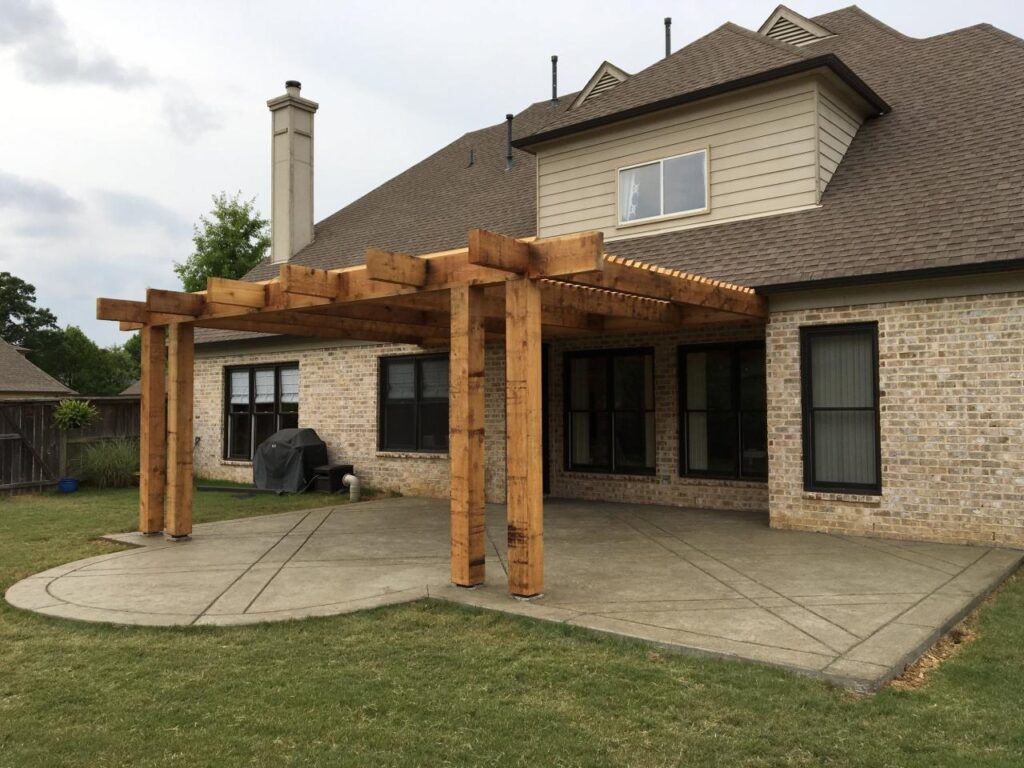
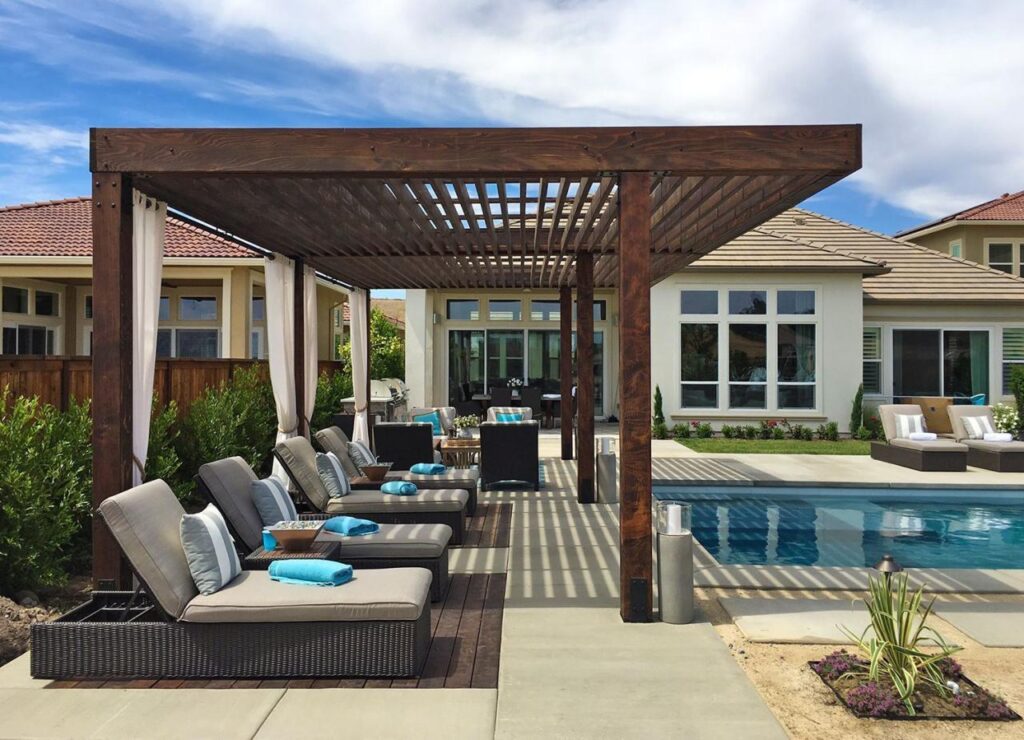

2 thoughts on “Wooden Pergola with Swing: An Outdoor Oasis of Beauty and Comfort”